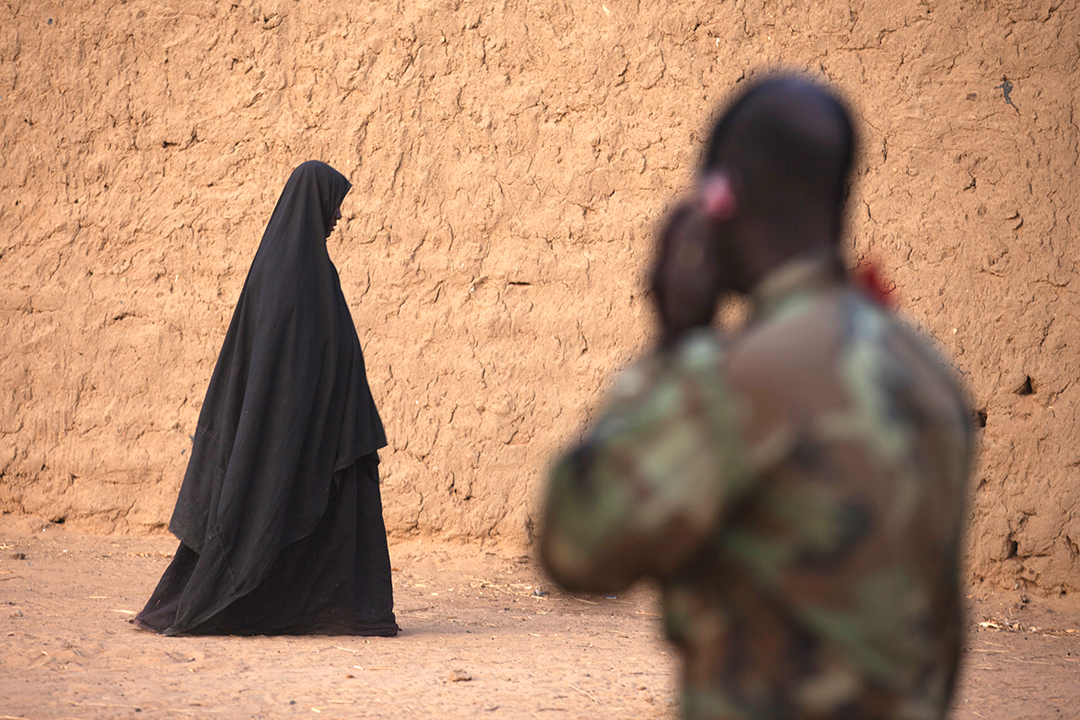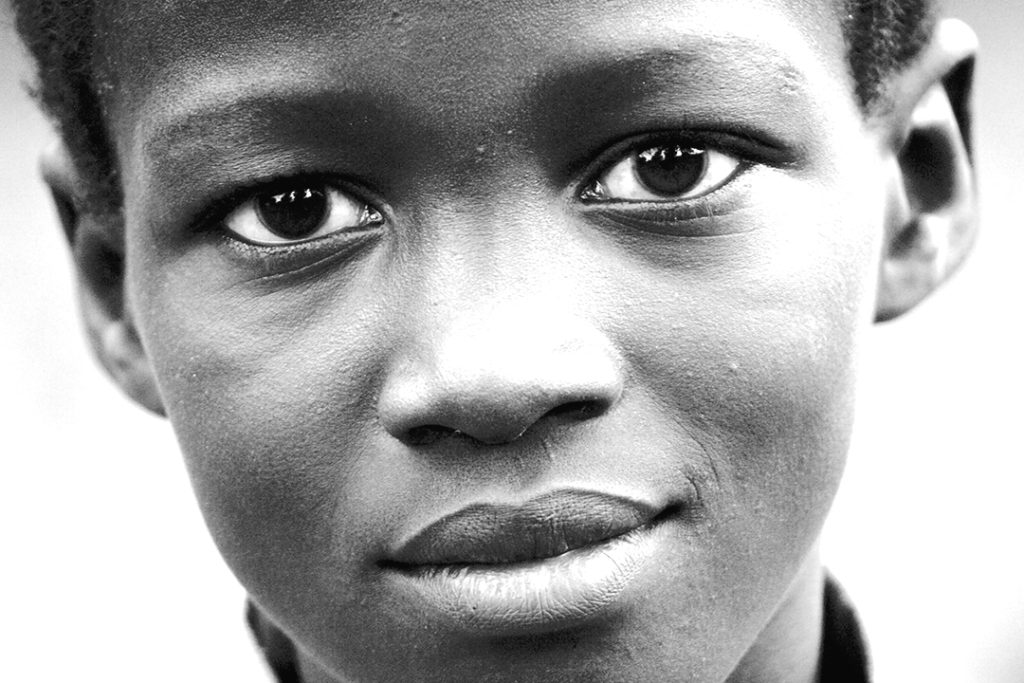Mali Emphasizes Human Rights, Protection of Women and Children in Combat Zones
LT. COL. AMINATA DIABATÉ
Lt. Col. Aminata Diabaté is chief of the International Human Rights Law Section in the General Staff of the Armed Forces of the Ministry of Defense and Ex-Combatants of Mali. Her work focuses on gender-based violence.
Beginning in 2012, Mali endured a crisis in the northern part of the country from which it is still trying to emerge.
For the first time, many elements of the Armed Forces and security sector faced complex and difficult situations. These included issues such as human rights law, the application of United Nations resolutions, and the code of conduct for the Armed Forces of Mali. The task at hand was immense, and the situation of the conflict was constantly evolving.
The rights of populations in northern Mali were gravely violated by the application of Sharia, which contradicts Mali’s judicial texts. In effect, the space of collective and individual liberty was severely reduced with the application of Sharia in the regions occupied by Islamic groups. Public whippings, restrictions on free expression, and forced marriages became commonplace. This had a profoundly negative effect on the rights of women and girls.

The consequences of an armed conflict on gender relations are significant. Forced displacement and violence linked to the sex of the victim are two repercussions that closely follow conflict. These are not inevitable side effects of conflict; they actually are deliberate strategies of war intended to destroy families and communities, and they annihilate national and community efforts to protect the rights of women and girls.
For example, it has been widely reported that in certain African countries systematic rape of women on a large scale occurs in conflict zones, and victims often accuse soldiers or militia members. It is also reported that for the majority of nations in conflict, the rate of HIV/AIDS infection increases among armed men on long deployments. In the Malian conflict, a study found that nearly 80 percent of rapists accused by victims were armed men — soldiers, peacekeepers or militia members.
It is time to address this problem. The Ministry of Defense and Veterans Affairs through the General Staff of the Armed Forces, in partnership with U.N. Women and the Netherlands, has developed a training module to protect women and girls before, during and after armed conflicts. This has allowed us to organize training sessions that have benefited numerous Malian Soldiers.
This program is part of a larger program of assistance to women and girls affected by conflict that also encourages the participation of women in the peace-building process. It is funded by the governments of the Netherlands, Spain and Switzerland, and the United Nations Development Programme and the European Union Central Emergency Response Fund.
It has proved important to take action to enhance the legal knowledge of defense and security forces of Mali, who are in advanced combat positions. They need to be educated on legal provisions and protection guaranteed to people in war zones. U.N. Resolutions 1325, 1820, 1888 and 1889 contain key provisions that armed groups must apply in conflict. Security forces play an important role in protecting and promoting the rights of women and girls in conflict, and they must live up to these responsibilities.
In Mali, these training sessions have been welcomed by the highest military authorities, who also engaged in the program. All ranks — officers, NCOs and other rank-and-file Soldiers — who received the training remarked on their interest in applying its content to their work in the field.
Specifically, these training events intend to:
1. Reinforce the understanding of the defense forces, notably as it applies to the rights of women and children to be protected from gender-based violence.
2. Help Soldiers understand more about the U.N. resolutions relating to women in crisis situations and sexual violence.
3. Disclose information about the responsibilities of troop leaders and superior officers concerning international law for violations of human rights, particularly the most vulnerable population groups.
4. Sensitize men who are preparing to deploy to advanced positions about the risks of HIV/AIDS and its impact on the overall performance of the armed forces.
These four pillars are reinforced, not just through lectures, but also through interactive exercises and role playing so Soldiers see and understand ambiguous and challenging scenarios before they are faced with them in the field. We hope this helps them make the right decisions when serving in advanced positions. The measure of any military is how it protects the most vulnerable population groups. We in Mali are making the safety of women and children in conflict zones a top priority.

